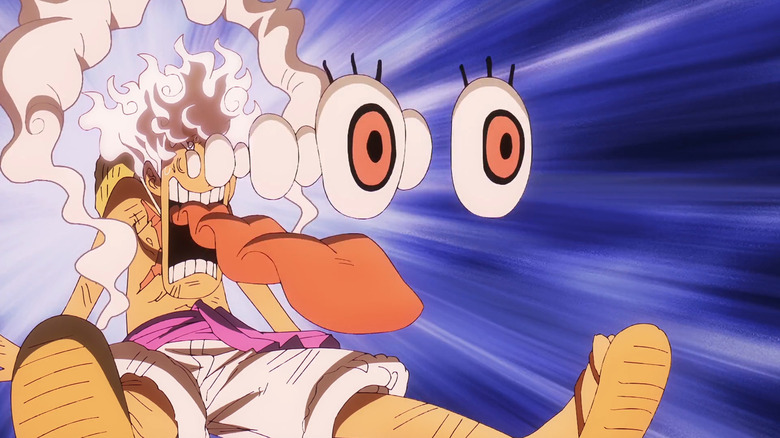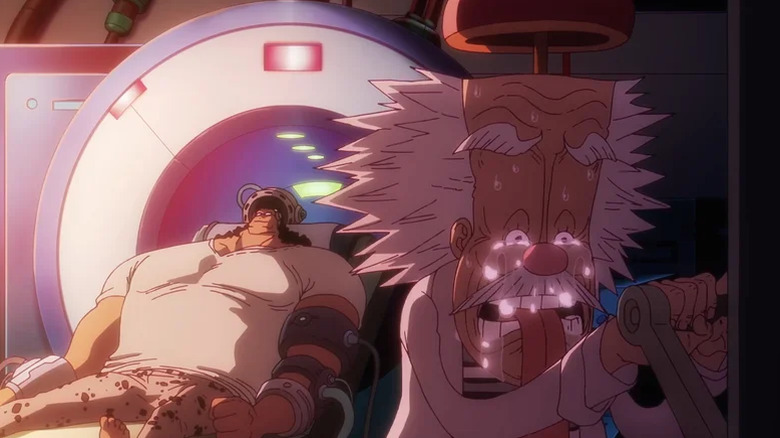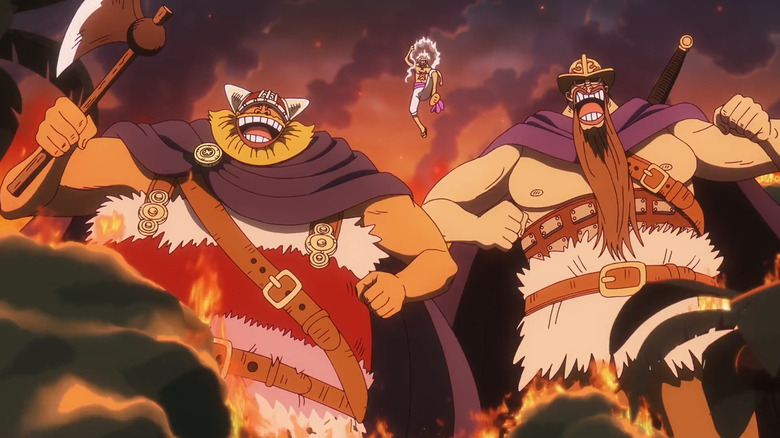The One Piece Anime Is Making A Major Change – And It Could Fix The Show's Biggest Problem
There is no one word that sends shivers down the spine of anime fans or starts as many discussions as the word "filler." The concept of a filler episode simply translates to any episode not directly based on the manga that the anime is adapting, and whether you should skip filler episodes or not is one of the great discussions among fans.
All the biggest anime have fallen victim to the filler episode, from "Dragon Ball Z" to "Naruto," as these shows were released weekly non-stop for years, meaning they would often catch up to their source material, which forces the animation production to stop and come up with original episodes to fill in the time for the manga to continue. Additionally, the weekly schedule means anime productions have to stretch out every single manga chapter to fill an entire half-hour of television regardless of the amount of story available, often resulting in poor pacing and never-ending fights.
Give it to "One Piece," one of the most legendary anime of all time, to figure out a solution to this problem after more than 1,100 episodes. Toei Animation just announced a huge change in the broadcast schedule of the long-running series starting in 2026. Once the current story arc, Egghead Island, ends next year, "One Piece" will go on hiatus from January to March 2026, then return as a seasonal anime. Rather than air a new episode every single week like "Dragon Ball Z," "One Piece" will now air in two split seasons, with a maximum of 26 episodes per year going forward.
Fewer episodes a year gives new episodes of "One Piece" the chance to be more focused, deliver a faster tempo, and even fix the two biggest issues with the show: the pacing and the filler.
One Piece has a pacing issue
The fact that "One Piece" has a pacing problem is not news to anyone who has watched more than a dozen episodes of the long-running anime. The pacing is a main reason why many hardcore fans are hesitant to introduce new people to the show, so they recommend the manga instead. Not only are fight scenes endlessly long, but even in seemingly random scenes you get overly long cuts and repetitions of shots that stretch out the action as much as possible and slow down the pacing. This can scare potential fans away from one of the best fictional stories of the last century. Indeed, the slow pacing of "One Piece" has gotten to the point where fans have taken it upon themselves to edit the entire show, removing filler and any scene that doesn't follow the exact pacing of the manga, reducing storylines by several dozen episodes.
In a press release, "One Piece" producer Ryuta Koike explained that this change was "a strategic decision to support the advancement and evolution of the anime series," promising new episodes will incorporate more of the context, tempo, and pacing of the manga.
Now, the anime has already been making progress when it comes to fixing the pacing. The Egghead Island arc has produced some of the best episodes in the entire show, including the most emotionally devastating anime episode of 2025. By allowing for greater artistic freedom in the animation and art direction, we've seen the rise of star animators leaving an impact on the show (like Megumi Ishitani in episode 1015), with sequences and episodes that feel like proper reinterpretations of the source material rather than just recreating it to the letter.
Is this the end of the weekly anime?
The move toward seasonal anime is great news for "One Piece," and couldn't be coming at a better time. The shift will happen when the show reaches the Elbaph Arc storyline, which is part of the so-called final saga of the manga. That's right, it feels hard to imagine, but "One Piece" is coming to an end, and the show seems to be about to go out with its best episodes yet.
There's also the recently announced "The One Piece" remake by WIT Studio and Netflix, meant to re-adapt the story from the very beginning — presumably with a shorter episode order that could lead to a more focused adaptation. Rather than just wait for that remake to lure in new and current fans, Toei Animation's announcement ensures that the current "One Piece" adaptation remains a must-watch, and, at least in the next storyline, the best adaptation possible.
This is a rather surprising move that feels like the beginning of the end for the weekly anime format. Where it used to be that the absolute biggest manga would get weekly anime adaptations, like "Dragon Ball," "Naruto," and "Bleach," nowadays, the biggest-profile shows are seasonal, with shorter episode orders and blockbuster productions. Shows like "Attack on Titan" and "Demon Slayer" changed the game, and if a titan of the industry like "One Piece" can abandon the weekly format, then perhaps this is the final nail in the coffin of the weekly anime.


